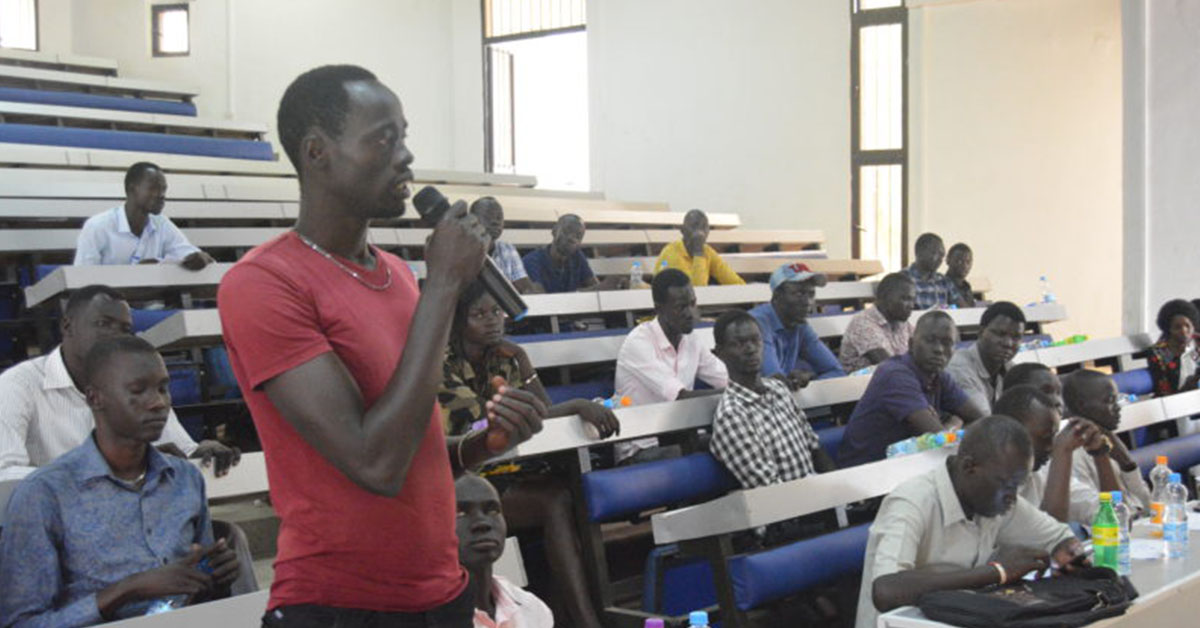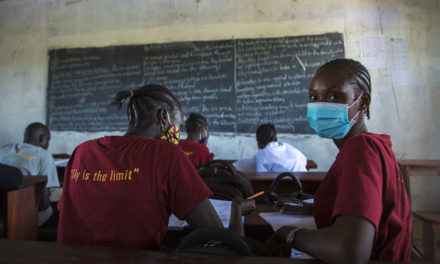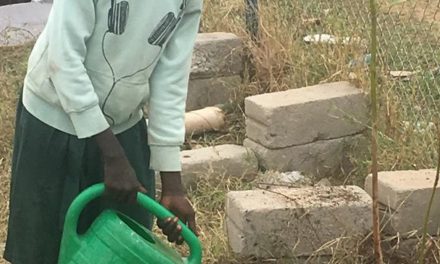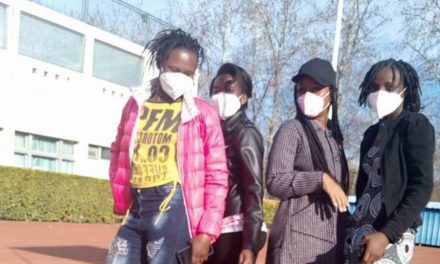
Why It’s Important To Know Your Rights

By The Insider Staff Writer
With free expression under increasing attack in South Sudan since conflict broke out in December 2013, students must understand and appreciate the rights protected by the Constitution of South Sudan.
In this transitional period of utter political stability, the rights of free expression, especially by the young people, are coming under increasing attack. Nowhere is this attack more vicious than on school campuses across the nation, where students from elementary school through college are being told not to speak their mind because doing so might offend someone, and particularly the government.
As more of these young people’s human rights are violated in the country, Okay Africa Foundation, a youth led civil society organization that has been fighting for the rights of young people in South Sudan, has taken the initiative to educate students on their rights.
With the support of partners like the Norwegian People’s Aid [NPA], Okay Africa has held several public lectures in various universities in the capital Juba, to sensitize students, whom the organization believes are at the core of change, of their rights.
The commissioner of the South Sudan Human Rights Commission, Beny Gideon Mabor says one of the problems with the laws of the country is that cabinet ministers are appointed as Attorney generals making it difficult to achieve total justice since it becomes hard for courts to prosecute top government officials and politicians.
“For God;s sake! You cannot be a minister of Justice and an Attorney General at the same time.” Mabor told students as he presented the “Know Your Rights” subject at the University of Juba.
“How can you prosecute your fellow members of cabinet?” Mabor demanded
He urged the students to put pressure on institutions that are not doing the right things and end up violating people’s rights in the process, to focus on their mandates and deliver services to the people.
Mabor said it’s very important for students to know their rights so that they can demand for those rights anytime someone attempts to deny them.
The rights commissioner urges students as well as other citizens to read the constitution and to know their various constitutional rights.
Human rights are the rights that everyone is entitled to, regardless of who they are or where they are born and live, meaning they are universal in nature. Human rights cannot be taken away, which means they are inalienable, according to the Youth Forum Organisation.
The organization articulates that all human rights are equally important and not subject to any hierarchy, making them indivisible. Also, guaranteeing one right cannot come at the expense of or compromise any other.
And finally, it declares that human rights are interdependent and interrelated, which means that the enjoyment of one right can depend on the enjoyment of others. The violation or lack of access to one right may affect an individual’s ability to access or enjoy other rights.
Michael Gorjin, NPA’s civil society project coordinator was shocked at the low turn up of the university students for the seminar on human rights.
“I was expecting this Hall to be full,” Gorjin exclaims.
“To be a productive citizen you have to know your rights. If you don’t know your rights, how do you claim your rights?” Gorjin asked the students.
He challenges the students to educate their communities about human rights.
“If you want South Sudan to be productive it’s your responsibility to go down [to the local communities] to educate citizens.” Gorjin added.
He said education does not only mean going to learn from schools but also passing knowledge to others via the various local languages in the country.
He urged Okay Africa organization to encourage students to invite fellow students and friends to attend free trainings to let them know their rights.
Human rights are not merely moral or ethical obligations. Human rights are legal rights that States around the world have agreed to through international documents such as treaties, conventions and covenants. Governments therefore have a legal obligation to respect, protect and fulfill human rights.
Youth rights refer to the full enjoyment of fundamental rights and freedoms by young people. There is no specific framework or instrument setting out the particular rights of young people at a global level. A convention on youth rights has the potential to address the specific challenges young people face, just as the UN Convention on the Rights of the Child does for children.
In the lack of a dedicated instrument on youth rights the existing human rights instruments that apply to everyone should be used to mainstream youth, according to the Youth Forum Organisation.
Sunicah Akuot, a second year journalism student at the Starford University in Juba, who was invited to the seminar by one of her friends, said training on human rights are vital to the country’s young population as well as the rural communities who do not have access to a university setting or workshops held in the city.
“People in the villages are cut off from the urban centers where such events happen, therefore, the NGOs should also cover rural areas to let people know their rights,” Akuot told The Insider.
She says if people are ignorant of their rights it becomes difficult for them to defend themselves or act independently.
“Take for example the rampant issues of forced marriage and early child marriage in rural areas. Since they are forced the society makes them believe its normal, which is not,” Akuot added.
























Recent Comments